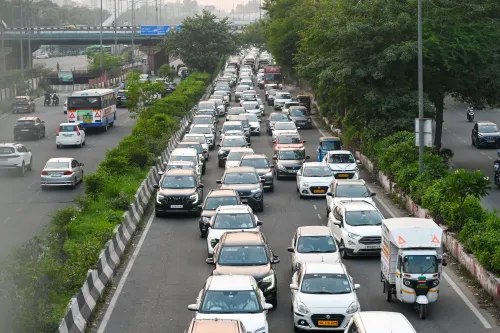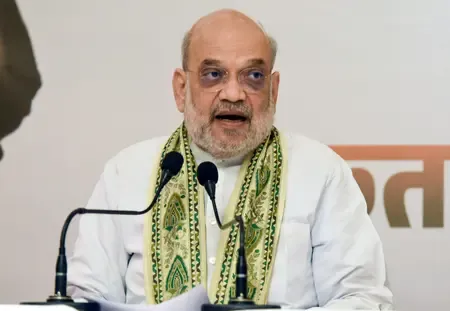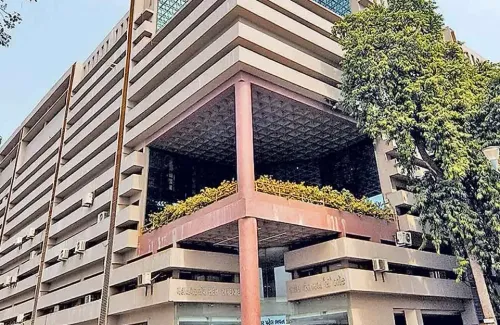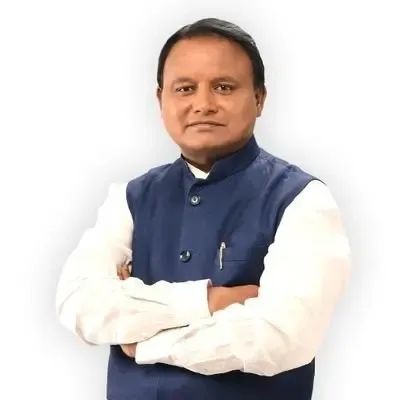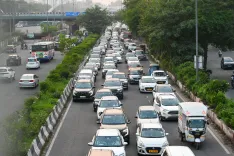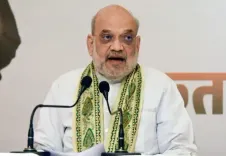Has the Centre Cleared the Appointment of 19 Judges to Telangana, MP & Gauhati HCs?

Synopsis
Key Takeaways
- 19 judges appointed across Telangana, MP, and Gauhati High Courts.
- The appointments were based on the Supreme Court Collegium's recommendations.
- New judges will help in managing the increasing case load.
- The process involves collaboration between the Chief Justice, the President, and the Union Minister of Law.
- Judicial appointments are crucial for maintaining the integrity of the legal system.
New Delhi, July 28 (NationPress) The central government has officially approved the appointment of 19 judges to three high courts in India, based on the recommendations from the Supreme Court Collegium.
Union Minister for Law and Justice Arjun Ram Meghwal shared this update via a post on X, stating that President Droupadi Murmu has appointed advocates Gouse Meera Mohiuddin, Chalapathi Rao Suddala, Vakiti Ramakrishna Reddy, and Gadi Praveen Kumar as additional judges of the Telangana High Court.
In the Madhya Pradesh High Court, President Murmu has also elevated five advocates: Pushpendra Yadav, Anand Singh Bahrawat, Ajay Kumar Nirankari, Jai Kumar Pillai, and Himanshu Joshi, along with judicial officers Ramkumar Choubey and Rajesh Kumar Gupta.
Additionally, judicial officers Alok Awasthi, Ratnesh Chandra Singh Bisen, Bhagwati Prasad Sharma, and Pradeep Mittal have also been appointed as additional judges of the Madhya Pradesh High Court.
During its meeting on July 1, the Supreme Court Collegium had recommended the elevation of five advocates and five judicial officers to serve as judges in the Madhya Pradesh High Court.
President Murmu has also sanctioned the appointment of four additional judges to the Gauhati High Court.
The Supreme Court Collegium recommended the elevation of advocates Anjan Moni Kalita and Rajesh Mazumdar, along with judicial officers Pranjal Das and Sanjeev Kumar Sharma, for the Bench.
These nominees were put forward by the Chief Justice of the Gauhati High Court after consulting his two senior-most colleagues.
According to the memorandum of procedure (MoP) guiding high court judges' appointments, the Chief Justice must initiate the proposal for appointments. Subsequently, the Governor, upon the Chief Minister's advice, is required to forward the recommendation along with all relevant documents to the Union Minister of Law and Justice as swiftly as possible, but no later than six weeks from when the Chief Justice submits the proposal.
The Union Minister of Law and Justice will evaluate the recommendations considering any other reports available regarding the candidates in question. The complete documentation will then be sent to the Chief Justice of India (CJI) for further advice. The CJI, after consulting the two senior-most Supreme Court judges, will provide his opinion regarding the recommendation for high court appointments.
Following these consultations, the Chief Justice of India will deliver his recommendations to the Union Minister of Law and Justice within four weeks.
Furthermore, as stipulated in the MoP, once the President signs the appointment warrant, the Secretary of the Department of Justice will notify the Chief Justice, and a copy of this communication will be shared with the Chief Minister, who will then publicize the appointment and issue the necessary notification in the Gazette of India.

